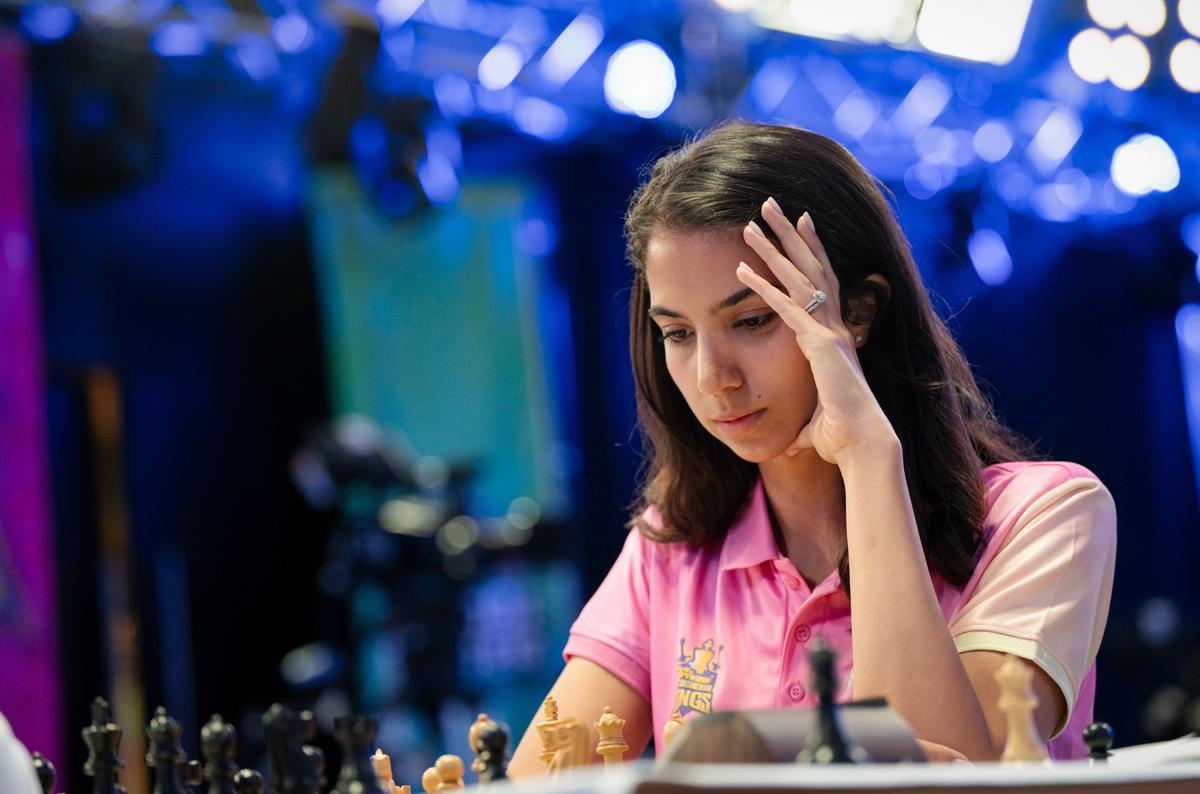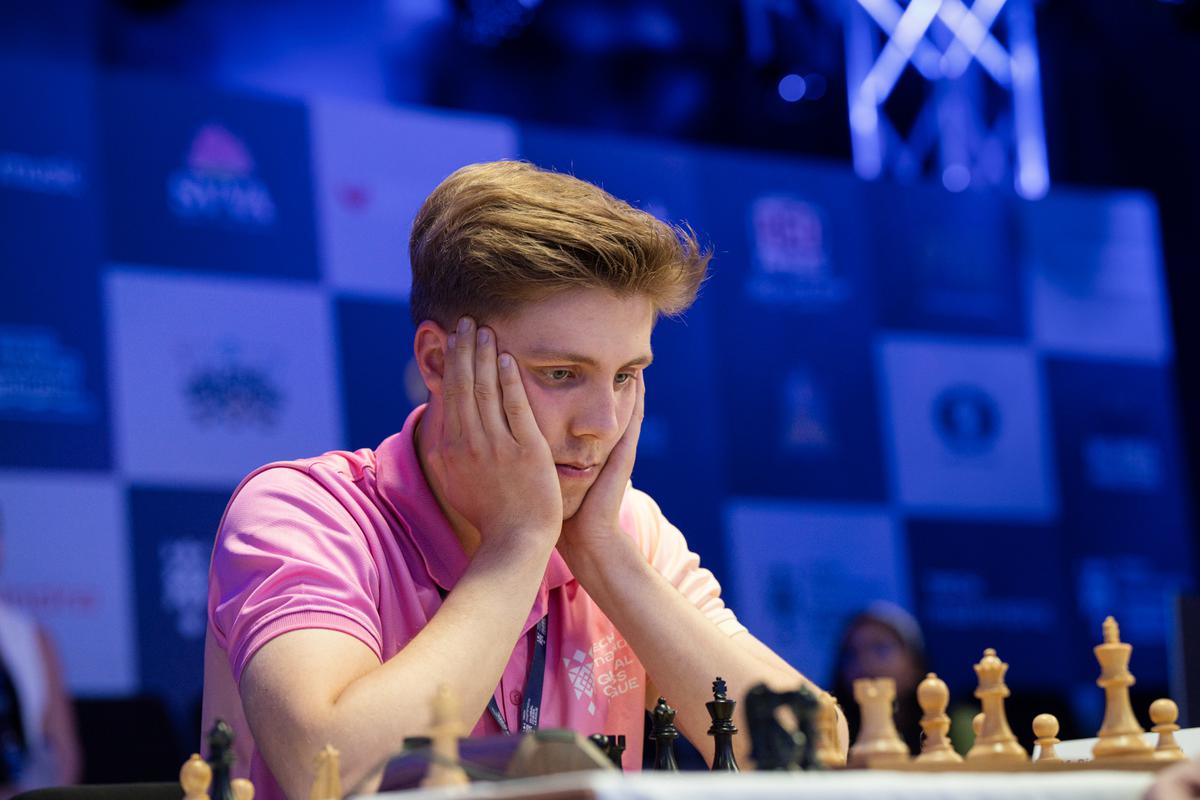Continental Kings — the dark horses that shone the brightest in Global Chess League
Six teams, six boards, 36 players and 31 matches with rapid time control (15 minutes + 10 seconds increment per move) were what the inaugural season of the Global Chess League (GCL) offered in an effort to catch the imagination of the chess world and give a facelift to the sport.
The idea of two Anands — chess legend Viswanathan Anand and entrepreneurial wizard Anand Mahindra — was finally put together to cater to the market that has evolved with time.
After 11 days of intense rivalry on the board, Triveni Continental Kings emerged as the champion, a result that would have surprised many, given that the team had been languishing in the last spot nearly halfway into the tournament.
Far-fetched ambition
The title was a far-fetched ambition for Kings who had to go through multiple changes before and during the tournament.
Their marquee signing from the draft, World Champion Ding Liren, had to be replaced by Levon Aronian just before the event after the Chinese backed out.

Stepping up: Sara Khadem had to come in place of Nana Dzagnidze.
| Photo Credit:
Global Chess League
Nana Dzagnidze, the Georgian GM and one of the strongest female players in the mix, also pulled out during the tournament, citing personal reasons, paving the path for Iranian Sara Khadem to step in.
Despite having no time to bond with her teammates or prepare for the matches, Sara did exceedingly well to spark a spirit of comeback in her teammates by winning three, drawing one and losing one in the five games she played.
“I had known all the players for a long time. It wasn’t the first time we all gathered together. But being a part of a team was something new for all of us. And I remember that on the first day I played, I lost the match, as did our team. So we were feeling a little down about the whole thing,” said Khadem over the phone from Spain to The Hindu.
Khadem’s contributions came at a time when she was grieving the death of her grandmother, making the Iranian’s achievements more creditable.
“It was extremely challenging. I recall having to play after I learned about her (grandmother’s) condition the night before. I knew she wasn’t feeling well, but when I found out what had happened the next day, I decided not to call my family before the game as I knew if I did, I wouldn’t be able to keep myself together emotionally,” she said.
“I just wanted to go to the board and finish the game quickly before returning to my room and talking with my family. But after that, I resolved to do my best. Finally, when we won the title, I dedicated my medal to my grandmother. That’s what I wanted to do throughout the tournament,” Khadem added.

Clutch: Jonas Buhl Bjerre’s performance catapulted the team to a title victory.
| Photo Credit:
Global Chess League
There was another King in a team that assembled Kings. Jonas Buhl Bjerre (19) from Denmark pulled off a literal heist against upGrad Mumba Masters in the final to lead Kings to the title.
It was a riveting summit clash of oscillating fortunes in rapid and blitz formats spread over 24 games, before the winner was decided via a sudden-death involving four games.
Bjerre, who had lost four consecutive games to the Uzbek teenage sensation Javokhir Sindarov in the sudden-death phase, bounced back in style to checkmate him in the middle of the board after the latter missed a mate-in-one.
Interestingly, Sindarov, the gold-winning member of the Uzbekistan team in the Chess Olympiad 2022, had earlier thrashed Jonas five out of the six times in the GCL.
But in the final, when it mattered the most, the Denmark No. 1, fighting the inner demons of being the lowest-rated player of the tournament, snatched a win from the jaws of defeat.
“It was a huge moment for me. I was overjoyed to have made a difference to the team at the last minute. I was struggling in the final, and winning after four losses in a row made it even more special,” said Jonas, who returned to Denmark to finish his high school studies.
Though Khadem and Jonas stole the limelight, King’s resilience came from a strong core —- individuals who held their ground and pushed the team towards win on multiple occasions.
Russia’s Kateryna Lagno lost just twice in 10 games, while China’s Wei Yi won seven of his 10 matches in the league stage and finished with a performance rating of 2941, the best in the league.
Amid all this, the calm-headed presence of Aronian — a three-time Chess Olympiad winner with Armenia (2006, 2008, 2012) and the 2011 World Team Chess Champion — on the top board worked like a charm for Kings.
“He is an exceptional leader and mentor.” He would frequently offer some advice before the game. He always encouraged us to fight until the end and have fun with the game. “He was fantastic at uniting the team, and as a result, our bond grew stronger,” Jonas said.
Khadem also praised the 40-year-old for his willingness to go out of his way to help others.
“Levon had a really important role in the win because he was the one who was cheering everyone on. He said we should fight regardless of the outcome and finish the game respectfully. We sometimes need that support because all of the players were good, but the results did not reflect on the board,” she said.
“I believe the Global Chess League has given many moments to cherish starting from the epic match between Magnus and Vishy to seeing some of the young and dynamic talent from across
the world”Anand MahindraChairperson, Mahindra Group
In a tournament that had Magnus Carlsen and Anand in other teams, no one gave Kings a chance. And, with constant changes, it was coach Loek van Wely’s skills that ensured the team kept going and peaked at the right time.
The Global Chess League lifted the sport to a more glamorous pedestal. However, in an ironic end, what came to the fore were individual brilliance and grit, underlining the characteristic tenets of the sport, even though the League was and meant to be a team event!
For all the latest Sports News Click Here
For the latest news and updates, follow us on Google News.
